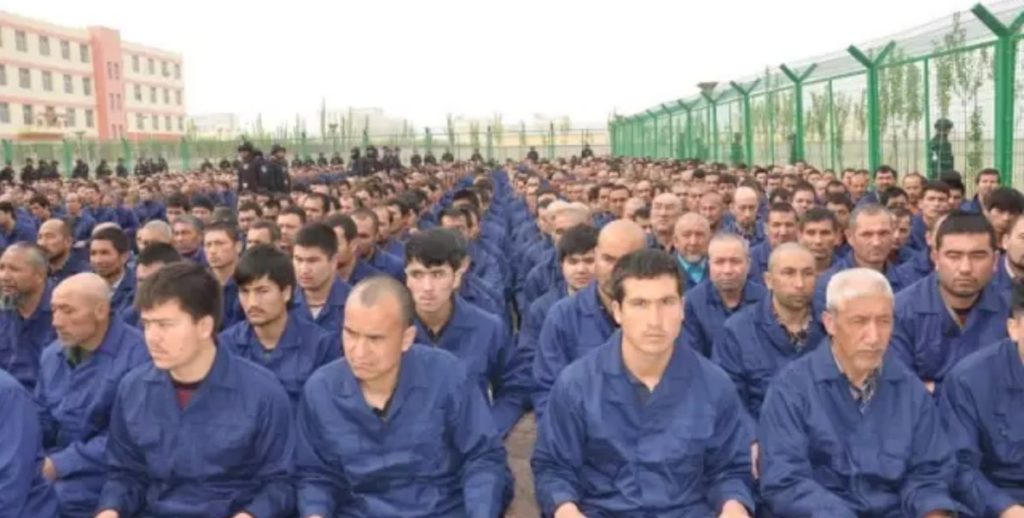
XINJIANG, China (BP) — They reportedly number more than 3 million. Uyghur American human rights advocate Rushan Abbas describes them as university presidents, doctors, entrepreneurs and artists. The Chinese Communist Party (CCP) calls them criminals.
China’s work to kill Christianity is highlighted in persecution watchdog Open Doors USA’s 2021 World Watch List. But China’s persecution of religious groups also includes the imprisonment and forced labor of Uyghur Muslims at concentration or “reeducation” camps in the Xinjiang Uyghur Autonomous Region (XUAR).
“The Chinese government tried to say that those are religious extremist or people who are engaged in illegal religious activities,” Abbas, a Virginia resident advocating for the freedom of Uyghurs in her homeland, said Wednesday during an Open Doors press conference. “Just saying ‘salam alaikum,’ which is Arabic greeting, means ‘peace be with you’ – most peaceful way to say hello, basically – even saying that could cause you to end up in the concentration camps.”
Abbas, whose sister Gulshan is among Uyghurs held in China, said “the Chinese Communist regime is waging a war against religion,” adding:
“To me, this is a test for the conscience of the world. This is about humanity. Anybody who hears about what’s happening to Uyghur people, anybody who vowed never again after World War II, should take action with their conscience and of course to pray for my sister and for those Uyghur people.”
In 2017, Abbas founded the Campaign for Uyghurs human rights advocacy group and works to mobilize the international community around the cause. The Southern Baptist Ethics & Religious Liberty Commission is among groups advocating for Uyghur freedom.
Among ERLC’s latest initiatives is support for the bipartisan Uyghur Forced Labor Prevention Act, passed by the U.S. House of Representatives in August 2020 and referred to the Senate Foreign Relations Committee in September.
“Currently, any brand sourcing apparel, textiles, yarn or cotton from XUAR is almost certainly profiting from forced Uyghur labor,” the ERLC wrote in August in support of the legislation. “The United States must send a strong message to the CCP that products made through forced labor will not be accepted because these egregious inhumane practices will not be tolerated.
“It is unconscionable for a free country like the United States to ultimately be accomplices in this Communist Party’s plan to profit from slave labor,” the ERLC wrote. “In holding the CCP accountable for the horrors that occur on a daily basis in the labor camps of Xinjiang, the United States has the opportunity to send a clear message that total disregard for human life will not be tolerated.”
Although the bill died in Congress, U.S. Customs and Border Protection (CBP) on Wednesday (Jan. 13) restricted entry into the U.S. of any cotton and tomato products produced in the XUAR.
The Department of Homeland Security (DHS) “will not tolerate forced labor of any kind in U.S. supply chains,” Acting DHS Deputy Secretary Ken Cuccinelli said. “We will continue to protect the American people and investigate credible allegations of forced labor. We will prevent goods made by forced labor from entering our country and we demand the Chinese close their camps and stop their human rights violations.”
Open Doors CEO David Curry cited the enslavement of Uyghurs among the reasons China is listed as 17th on the 2021 World Watch List of the most dangerous places for Christians to live.
“The inhumanity against Uyghur Muslims is shocking,” Curry said Wednesday in releasing the World Watch List. “I encourage every Christian, every person of any faith, and anybody who wants to have freedom of conscience, to speak out for the Uyghur Muslims. … They’re not criminals.”
Open Doors has estimated the number of detained Uyghurs at more than 1 million, but Campaign for Uyghurs estimates the number has surpassed 3 million and quotes a document from CCP secretary Chen Quango ordering that detention centers “teach like a school, be managed like the military and be defended like a prison.” Detention centers “must first break their (Uyghur) lineage, break their roots, break their connections and break their origins,” the Campaign for Uyghurs quotes the document.






















